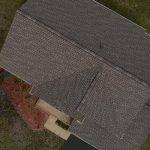As the local experts for storm damage restoration, regardless of exterior insurance claims, we have heard many questions. We’ve rounded up the questions that are asked most frequently so that we can help you begin to navigate your storm restoration process for roofing, siding, gutters, and more. Our goal is to help you make the best choices as you rebuild or restore your home.
When should I file an insurance claim?
Most insurance companies are using weather-tracking and hail storm reporting services to track areas that have been affected by storms. Because of this, hail size and locations may already be known by insurance companies and the damages may already be expected. If you recently had a hail or high-wind storm in your area, call a trained and certified roofing inspector. With our inspectors present when the insurance adjusters visit your home for their inspection, we are able to expedite the process and communicate with all stakeholders to bring you the best value possible.
Should I file a claim or repair the damage?
Many folks have told us that they make the decision based on how much it will cost to make the necessary repairs, and how much it relates to their policy deductible. If the damage is severe enough, it would be good to consider filing the claim. But you’ll need a roofing company that understands and works well with insurance companies. Unfortunately, some roofing companies don’t fully understand what types of damage would qualify as storm damage. As a result, they recommend a repair and you miss out on the opportunity of a complete restoration.
How much does a roof replacement cost?
According to the Remodeling Cost-vs-Value report of 2018, the average cost for a typical 30 square roof in Baltimore is $20,636. Most single family homes are around 20-30 square. Our inspection is free with no obligation. But every restoration project is different. We’ll work with your insurance company to get you the complete restoration your home needs.
I already placed a claim, do I still need a contractor?
If you’ve filed a claim or the adjuster has already inspected the damage, we still recommend having a qualified roofer inspect the roof and review the adjusters quote. That way you can be confident that nothing is missed and you are receiving the best value possible.
If I place a claim will my insurance company raise my rates?
After a severe storm, insurance companies may raise everyone’s rates anyway. By not filing your claim, your personal rate increase could be paying for everyone else’s damage except yours.
Why do I need a roofing company to inspect my roof if the insurance adjuster can do that?
While an adjuster is trained to identify storm damage, occasionally there are details to the roof system that are left out or overlooked due to the lack of technical roofing knowledge. We are able to advocate for full coverage in every detail.
If my home only has a small amount of damage do I still need to file a claim?
As stated previously, that is ultimately up to you and your insurance company. If the damage is minor, you may want to just make the necessary repairs and not bother placing a claim. But the key is understanding the nature of the damage as some is not readily apparent to the untrained eye. Damage might not cause your roof to leak for years and there is only a small window of time after a storm that your insurance can cover damage. This is why it’s important to have a qualified roofing company inspect your roof. In some cases the simple fact that the product’s warranted lifetime has been reduced by the damage can be a reason for repairs/replacement to occur.
What to Do Right After a Storm
If your home has just been hit by high winds or hail, acting quickly can help prevent further damage. Before calling your insurance company, take a few precautionary steps to keep your property safe.
- Inspect for visible roof or siding damage. Look for missing shingles, dents, or debris that may indicate impact damage.
- Call a local roofing professional. A trained eye can identify issues that might not be obvious, such as torn flashing or punctures caused by hail.
- Protect your home from additional water intrusion. If your roof has been compromised, you might need an emergency tarp until permanent repairs can be made.
RoofPRO offers emergency roof repair and tarping services across Maryland to help homeowners stay protected while awaiting insurance claims or full restoration. To learn more about how temporary tarps can prevent leaks and structural damage, check out our article on emergency tarp roofs.
Should You File a Storm Damage Claim or Pay Out of Pocket?
Deciding whether to file an insurance claim can be tricky. Minor damage might not exceed your deductible, but larger impacts from hail, wind, or falling branches could justify a full claim. Filing promptly also helps ensure that time-sensitive coverage windows don’t expire.
If you’re unsure, review our detailed article: Roof Replacement in Maryland: Should You File a Storm Damage Claim?. It explains how insurance companies assess damage, what documentation you’ll need, and how RoofPRO can help you through the process to maximize your claim value.
How do I know if hail has damaged my roof?
Hail can cause varying levels of roof damage — and not all of it is easy to spot. Even smaller hailstones can loosen granules, bruise shingles, or crack flashing, which may lead to leaks over time.
If you’re uncertain whether the last storm caused damage, our article “What Size Hail Will Damage a Roof?” outlines what to look for, including how different roof types respond to hail impact. A professional inspection is always the safest way to confirm the extent of the problem and document it for insurance purposes.
What if the insurance company doesn’t provide enough money for the project?
If you haven’t had a qualified roofing company that has an understanding of the insurance estimating process review your project, that would be the first place to start. After reviewing the project, if there are not missing details, another option would be to look into our financing options to cover the rest of your project.
Should I file a claim for hail or wind damage?
This depends on the severity of the damage and your insurance deductible. In many cases, storm damage that appears minor can shorten your roof’s lifespan or worsen with time. If you’re unsure, it’s wise to get a professional opinion before deciding.
To help guide you through the decision, our blog “Roof Replacement in Maryland: Should You File a Storm Damage Claim?” explains how to evaluate the costs, when to involve your insurance company, and how a certified roofer can help ensure that your claim includes everything necessary for full restoration.

Author Bio
Tim Taylor – Owner & Founder of RoofPRO
Tim Taylor began his roofing career in 2003 and founded RoofPRO in 2004 with a mission to fix the poor workmanship that often causes roof leaks. With over 20 years of hands-on experience, he’s earned elite credentials like CertainTeed’s ShingleMaster Wizard certification, HAAG inspection certifications, and OSHA safety training. His expertise in leak repair, flashing repair, and post-storm restoration has made RoofPRO one of Maryland’s most trusted roofing companies. Tim continues to lead with the same principle that built his reputation—roof it right the first time



